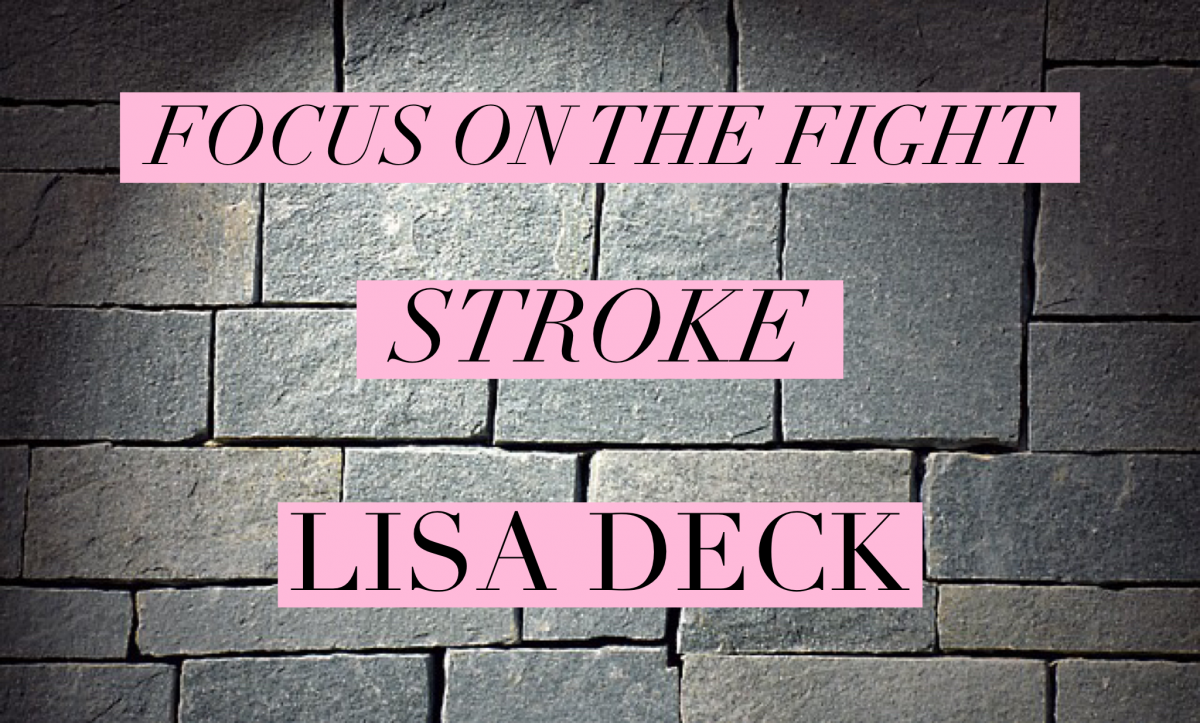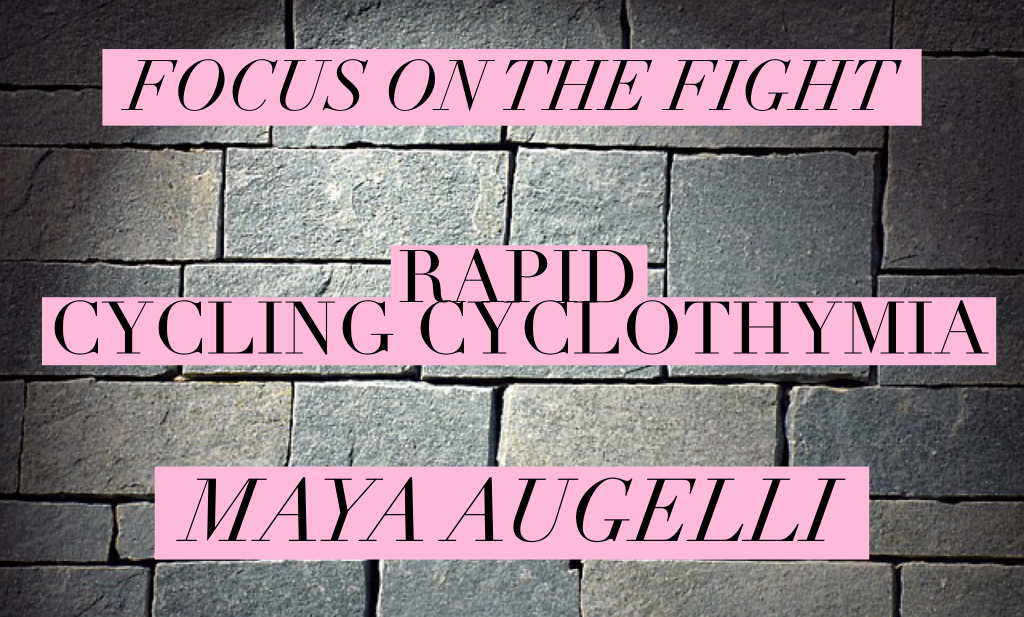Welcome to Focus On The Fight, a series of interviews that will be posted weekly, focusing on a blogger and their health.
This week we will meet Lisa Deck. She has a multitude of chronic condition including the condition we will highlight this week: STROKE
Lisa is a 43- year-old wife and mom of two children- ages 12 and 10. She lives in North Attleboro, MA. She is unable to work due to her disability but is an avid volunteer with the American Heart Association, various rare disease organizations and at my children’s’ schools. Lisa loves to spend time with my family read, hang out with my friends, travel and collect sea glass at the beach.
She is a four time stroke survivor and Moyamoya disease patient. She had her first stroke at age 21 and my last stroke at age 39. She has lived over half my life as a patient.
So what is a stroke? A stroke is a “brain attack,” that can happen to anyone at any time. A stroke occurs when the blood blood flow to a certain area to the brain is limited or cut off. When blood flow is limited brain cells are deprived of oxygen and begin to die. As brain cells die during a stroke, a person’s abilities can be lost.
Each person’s stroke and loss of abilities will be different due to the fact that it depends on where the stroke occurs in the brain and how much the brain may be damaged.
According to the American Heart Association nearly 800,000 people will experience a new or recurring stroke annually. That being said, we need to remember though is that up to 80% of strokes can be prevented if we live a healthy lifestyle.
Symptoms of a stroke:
-
Trouble speaking and understanding, you may also experience some confusion. You words may become slurred and you may develop difficulty understanding others
-
Paralysis or numbness of the face, arm or leg. You may develop sudden numbness, weakness or paralysis in your face, arm or leg. This often only happens on one side of your body. Also, you may notice that one side of your mouth may droop when you try to smile.
-
Trouble with seeing in one or both eyes. You may suddenly have blurred or blackened vision in one or both eyes, or you may see double.
-
Headache. A sudden, severe headache, which may be accompanied by vomiting, dizziness or altered consciousness, may indicate you’re having a stroke.
-
Trouble with walking. You may stumble or experience sudden dizziness, loss of balance or loss of coordination.
Now that we all know a little bit about Lisa and the condition she lives with I would like to share the entirety of Lisa’s Interview.
How long did it take you to get diagnosed? Now that you have been diagnosed and can look back at your past, is there an event that you can pinpoint as a flare now that at the time you didn’t know what it was?
After my first two strokes, I was diagnosed with and treated for Central Nervous System Vasculitis. The treatment of chemotherapy, steroids and blood thinners for four years straight was debilitating. I was eventually declared in remission which lasted fourteen years. Shocked by a fourth stroke at age 39, I was then correctly diagnosed with Moyamoya disease. There is no cure for Moyamoya disease but I endured the treatment which was bilateral brain bypass surgeries. Fortunately, the challenging surgeries went successful. Looking back at my young life before 21, there were definitely moments of chronic painful headaches, numbness and TIAs- all symptoms of stroke and Moyamoya.
Tell us about how your illness(es) impacts your daily life!
Stroke has become part of my identity as I have been a survivor for over half my life. On the challenging side, I have always dealt with fatigue and often had left sided numbness. I have struggled emotionally with the impact of my health on my family and friends s and with anxiety and even PTSD post-surgery. On the positive side, I have dedicated my life to volunteerism which brings me great joy and amazing patient connections.
Have you noticed that your health has impacted any of your current or previous relationships!? If so, how?
I have been blessed to grow my relationships through my health problems. Fortunately, family and friend have chosen to stick by me and help me though the tough times (which were many!) I do find that I can’t socialize as much as I want due to my restrictions but I try to focus on quality instead of quantity.
In what way has your life changed since your diagnosis? Is there anything that you cannot do now that you could do before diagnosis?
My life has changed tremendously since my diagnosis. I am unable to work which is very hard. I have made the most of my energy and do engaging and rewarding volunteer work. But it’s hard to not have a career when everyone around you does. I have learned to pace myself but fatigue is now a permanent part of my life. I have to be sure to prioritize things important to me since I don’t always have enough energy. Finally, I have learned to appreciate the things I do have in life and focus on the positive. I could be bitter and angry but I try to see the positive side of my diagnosis: a new focus on health, time with and the love of my family and friends, and the ability to give back which makes me feel good.
Everyone’s disease will act different, for you how do you know you are having a flare?
Moyamoya doesn’t really have flare but symptoms include headaches, numbness and TIAs. Hydration is key post-surgery for Moyamoya patients. I have slight symptoms when I am dehydrated so I know I need to rest and drink water.
What do you do to treat your flares? Or to make your bad days better?
On my bad days, I try to rest and hydrate. I journal to help me get to the source of my feelings and turn to my husband, parents and close friends for assistance. Hugs from my kids always help too!
In closing I asked Lisa two last questions. I asked her what advice she would give to someone who is going through the diagnosis process or is newly diagnosed. As well as what she would want the world to know about living with a chronic illness. Here is what she said.
-Advocate for yourself. Don’t ever give up on finding answers. Once diagnosed, take one day at a time and find a reason to fight. You got this.
–Living with a chronic illness is challenging and often invisible. “Be kind, for everyone you meet is fighting a battle you know nothing about.”
I would like to thank Lisa for sharing her story with us. She has such a passion and a drive to share her health and wellness journey with others.
Where You Can Find Lisa
With Love,
Amber



